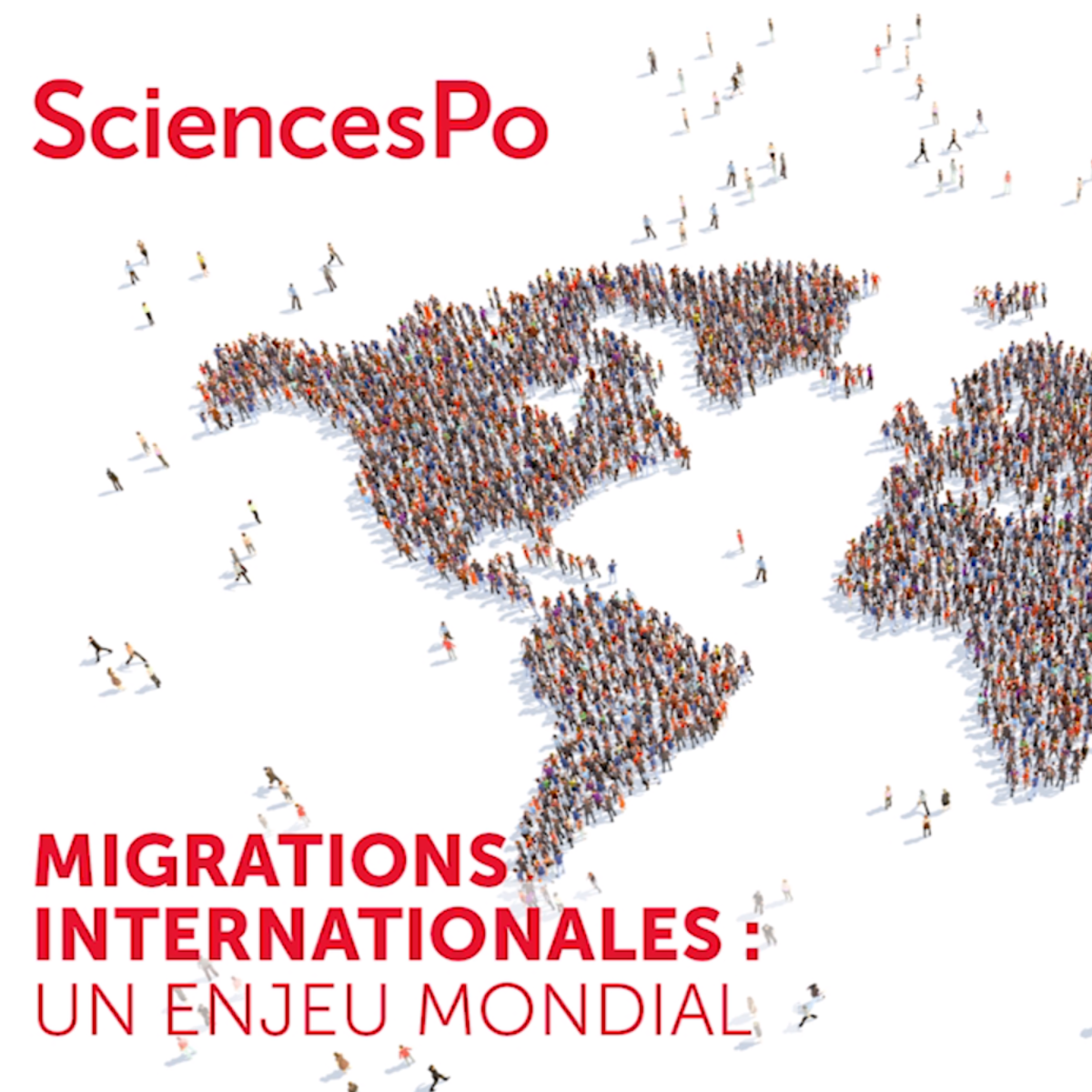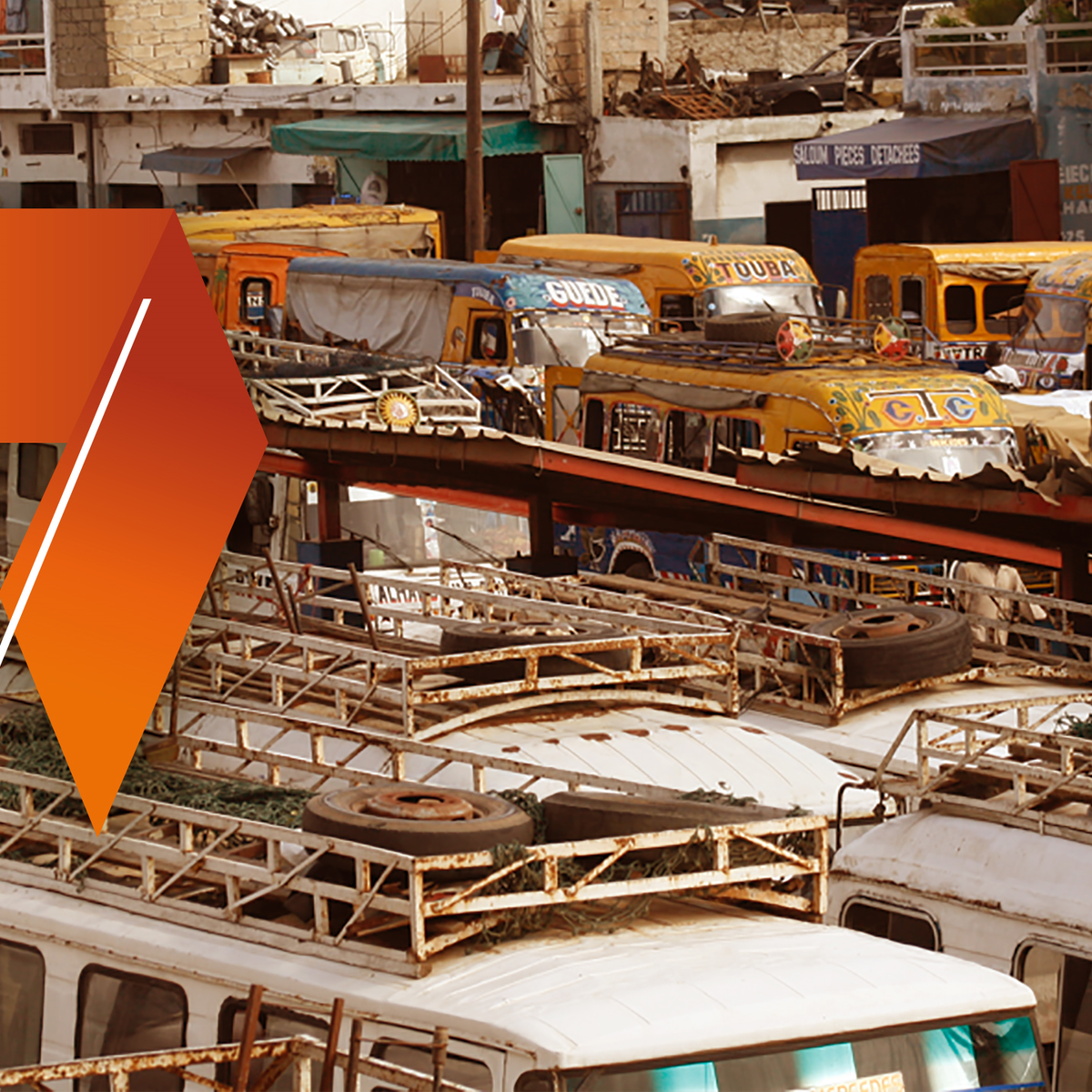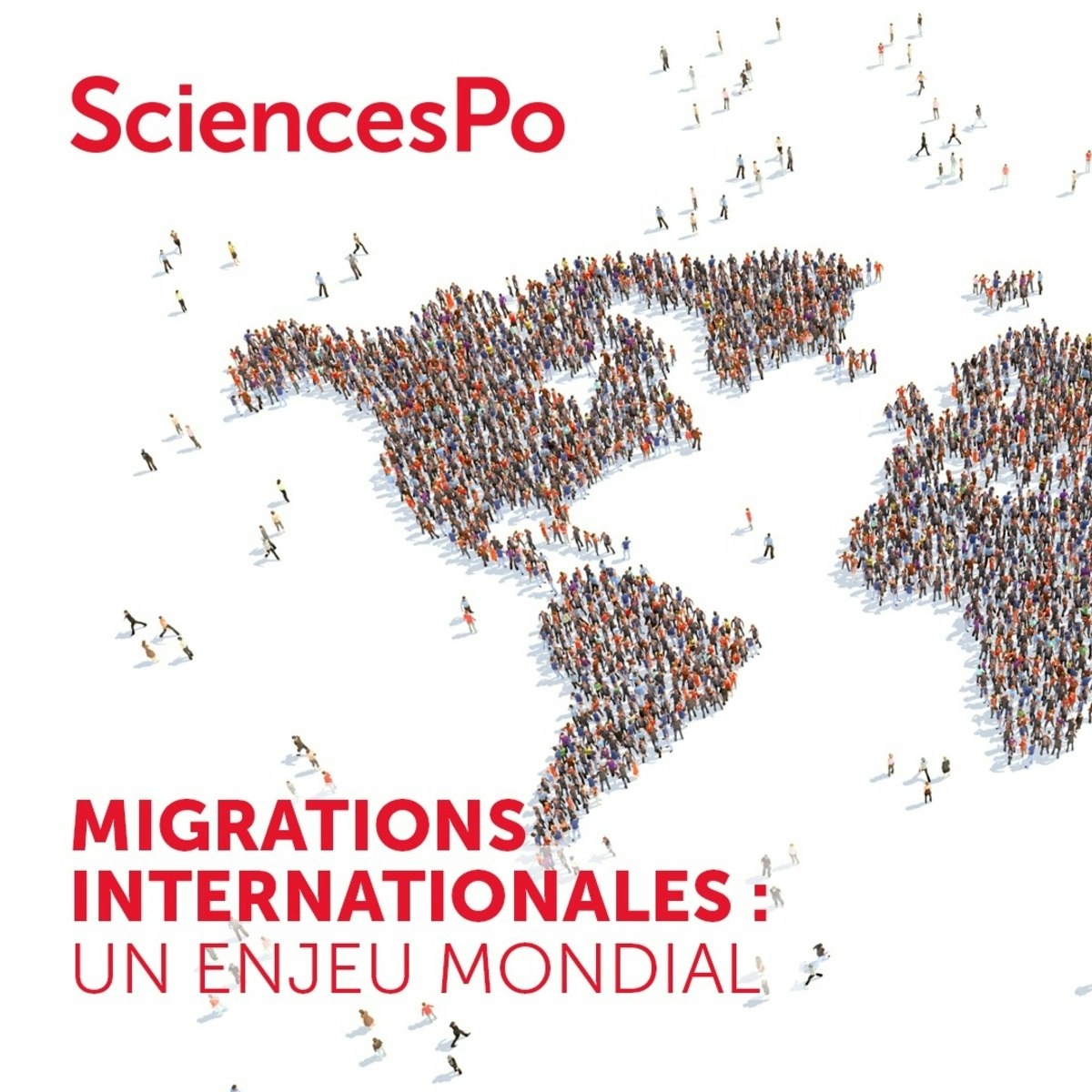Demographer
Demographer: Understanding Population Dynamics
Demography is the scientific study of human populations, focusing on their size, structure, distribution, and changes over time due to births, deaths, and migration. It's a field that sits at the crossroads of sociology, economics, statistics, public health, and geography, providing critical insights into how societies evolve and function. Demographers analyze data to understand patterns and trends, helping organizations and governments make informed decisions about resource allocation, policy development, and future planning.
Working as a demographer can be intellectually stimulating, offering the chance to explore complex societal questions through rigorous analysis. You might find yourself forecasting population growth for urban planning, studying the impact of aging populations on healthcare systems, or analyzing migration patterns to inform immigration policy. The ability to translate complex data into actionable insights makes demography a field with significant real-world impact.
What is Demography?
Defining the Field and Its Reach
At its core, demography seeks to answer fundamental questions about human populations: How many people are there? Where do they live? What are their characteristics (age, sex, ethnicity, income, education)? How are these populations changing, and why? Demographers use statistical methods to measure and describe these aspects, often developing models to predict future trends.
The scope of demography is vast. It encompasses the study of fertility (birth rates), mortality (death rates), and migration (movement of people). These three components – births, deaths, and migration – are the primary drivers of population change. Demographers examine the social, economic, cultural, and environmental factors that influence these processes.
Understanding these dynamics is crucial for addressing many contemporary challenges. From planning for healthcare needs and social security systems in aging societies to managing resources in rapidly growing urban areas or understanding the impacts of displacement due to conflict or climate change, demographic insights are indispensable.
To grasp the fundamentals of population studies and their societal relevance, consider exploring introductory courses in sociology or global challenges.
A Brief Look at Demographic History
While humans have long counted populations for taxation or military purposes, formal demography emerged much later. Early precursors include John Graunt's 17th-century analysis of mortality bills in London, considered one of the first systematic attempts to understand population patterns from data. Thinkers like Thomas Malthus later brought population growth into sharp focus with theories about its relationship to resources.
The development of censuses, vital registration systems (recording births and deaths), and surveys in the 19th and 20th centuries provided the raw data needed for the field to flourish. Advances in statistical methods and, later, computing power, allowed for increasingly sophisticated analysis and modeling.
Key historical developments include the theory of the demographic transition, which describes the shift from high birth and death rates to low birth and death rates as societies industrialize and develop. Understanding this history provides context for current demographic theories and challenges.
These foundational texts explore the history and core theories that shape modern demography.
The Day-to-Day Work of a Demographer
What does a demographer actually do? Responsibilities vary depending on the specific role and sector (academia, government, non-profit, private industry), but common tasks often involve collecting, analyzing, and interpreting population data. This could mean designing surveys, cleaning and managing large datasets, applying statistical models, and forecasting future population trends.
A significant part of the job involves communicating findings clearly and effectively to diverse audiences, including policymakers, business leaders, researchers, and the public. This often requires writing reports, creating visualizations (like charts and maps), and giving presentations.
Demographers might specialize in areas like fertility patterns, mortality analysis, migration studies, population aging, spatial demography (using geographic information systems), or family demography. Their work directly informs decisions in areas like public health planning, market research, social policy, and economic forecasting.
Core Skills and Tools for Demographers
Mastering Statistical Analysis and Data Interpretation
Quantitative skills are fundamental to demography. A strong grasp of statistics is essential for analyzing population data, identifying trends, testing hypotheses, and building predictive models. This includes understanding probability, descriptive statistics, inferential statistics (like regression analysis), and methods specific to demographic analysis (like life table construction).
Beyond calculations, demographers need excellent data interpretation skills. They must be able to look at tables of numbers, complex models, or statistical outputs and understand what they mean in a real-world context. This involves identifying significant patterns, discerning correlation from causation, and recognizing the limitations of the data and methods used.
Critical thinking is intertwined with data interpretation. Demographers must question assumptions, evaluate the quality of data sources, and consider potential biases in their analyses. They need to synthesize information from various sources to draw sound conclusions.
These resources provide foundational knowledge in probability and statistics, often applied in demographic analysis.
Proficiency in Essential Software
Modern demography relies heavily on software for data management, analysis, and visualization. Proficiency in statistical software packages is crucial. R and Python are widely used open-source options, valued for their flexibility and extensive libraries for statistical analysis and data manipulation.
Specialized demographic software also exists, but familiarity with general statistical packages like SAS or Stata is also common, particularly in certain government agencies or academic departments. Database management skills (e.g., using SQL) are also valuable for handling large datasets.
Geographic Information Systems (GIS) software, such as ArcGIS or QGIS, is increasingly important for spatial demography. GIS allows demographers to map population distributions, analyze spatial patterns of migration or health outcomes, and integrate demographic data with geographic context.
Online courses offer excellent opportunities to develop proficiency in these essential software tools.
Designing Surveys and Understanding Qualitative Methods
While demographers often work with existing data (like censuses or large surveys), they sometimes need to collect primary data. This requires skills in survey design, including questionnaire development, sampling techniques, and data collection methodologies. Understanding how to design effective surveys ensures the collected data is reliable and valid for answering specific research questions.
Knowledge of different sampling strategies (e.g., random sampling, stratified sampling, cluster sampling) is essential for ensuring that survey results accurately represent the broader population. Courses focusing on survey methodology can provide this expertise.
While primarily a quantitative field, demography increasingly recognizes the value of qualitative research methods. Techniques like in-depth interviews, focus groups, and ethnographic observation can provide rich contextual understanding that complements quantitative findings, helping to explain the 'why' behind demographic trends.
Communicating Complex Ideas Clearly
Strong communication skills are paramount for demographers. The ability to explain complex statistical findings and their implications to non-expert audiences is critical. This includes writing clear, concise reports and policy briefs, creating compelling data visualizations, and delivering effective presentations.
Demographers must tailor their communication style to different audiences, whether presenting technical details to fellow researchers or summarizing key takeaways for policymakers or the public. Visual tools like charts, graphs, and maps are essential for making data accessible and understandable.
Collaboration is also common, requiring demographers to work effectively in teams with researchers from other disciplines, policymakers, or community stakeholders. Active listening and the ability to articulate ideas clearly are vital for successful collaboration.
Formal Education Pathways
Preparing in High School
For students considering demography early on, focusing on a strong foundation in mathematics is highly recommended. Courses in algebra, calculus, and especially statistics provide essential quantitative skills. Complementing this with social science courses like sociology, economics, geography, and history builds crucial contextual understanding.
Developing strong writing and analytical skills through English and social studies courses is also important. Familiarity with basic computer applications and perhaps an introduction to programming concepts can provide an early advantage.
Engaging in extracurricular activities related to data analysis, social issues, or research can also be beneficial. Participating in math clubs, debate teams, or projects involving community data can spark interest and build relevant experience.
These courses provide a glimpse into related fields often studied at the university level.
Undergraduate and Graduate Studies
There isn't typically a specific undergraduate degree labeled "Demography." Students often enter the field with bachelor's degrees in related disciplines such as Sociology, Economics, Statistics, Geography, Public Health, or Mathematics. Coursework should emphasize quantitative methods, statistics, research design, and social science theory.
A master's degree is often considered the entry-level requirement for many applied demographer positions in government or industry. Master's programs specifically in demography, applied statistics, public health (with an epidemiology or biostatistics focus), or sociology (with a quantitative focus) provide specialized training.
These programs deepen expertise in demographic methods, statistical software, data analysis, and specific substantive areas (e.g., fertility, mortality, migration). They often include a thesis or capstone project involving original research or applied analysis.
These foundational texts are often encountered in undergraduate or graduate studies in related social sciences.
Pursuing a PhD and Research Careers
A Doctor of Philosophy (PhD) is generally required for academic positions (university teaching and research) and high-level research roles in government agencies or research institutions. PhD programs in Demography, Sociology, Economics, Public Health, or related fields offer intensive training in advanced research methods, theory, and statistical modeling.
Doctoral studies involve rigorous coursework, comprehensive exams, and the completion of a dissertation – a significant piece of original research contributing new knowledge to the field. This path develops deep expertise in a specialized area of demography.
Choosing a PhD program involves considering faculty research interests, program structure, available resources, and funding opportunities. It's a demanding path requiring strong commitment, intellectual curiosity, and resilience.
Online and Self-Directed Learning
Can You Learn Demography Online?
While a formal degree is often necessary for traditional demographer roles, online learning offers valuable pathways to build foundational knowledge and acquire specific skills. Numerous online courses cover statistics, data analysis, programming languages like R and Python, GIS software, and survey methods – all core components of a demographer's toolkit.
OpenCourser aggregates thousands of courses from various platforms, making it easier to find resources relevant to demography and related fields like Data Science or Public Policy. These can be particularly useful for individuals exploring the field or seeking to update their skills.
However, it's important to be realistic. While online courses excel at teaching technical skills and theoretical concepts, they may not fully replicate the comprehensive training, mentorship, and networking opportunities of a formal degree program, especially at the graduate level. Self-directed learning requires significant discipline and initiative.
Supplementing Your Education with Online Resources
For students enrolled in formal degree programs, online courses can be powerful supplements. They can help reinforce challenging concepts, provide practical training in specific software tools not covered extensively in coursework, or allow exploration of specialized topics beyond the standard curriculum.
Working professionals can use online learning to stay current with new methods and technologies, acquire skills needed for career advancement, or pivot towards more data-intensive roles. Platforms like OpenCourser allow you to save courses to a list and track your learning goals.
Certificates from reputable online courses can demonstrate initiative and specific competencies to potential employers, especially when combined with practical project experience. Check the OpenCourser Learner's Guide for tips on leveraging online certificates.
These courses cover topics often supplementary to formal programs, such as specific data applications or related societal issues.
Building a Portfolio with Independent Projects
Regardless of your learning path, demonstrating practical skills is crucial. Undertaking independent projects is an excellent way to apply learned concepts and build a portfolio. Analyze publicly available demographic data (from sources like census bureaus, the UN, or the World Bank) to explore a topic of interest.
Project ideas could include analyzing population aging trends in a specific region, mapping migration flows, examining fertility differentials between different groups, or forecasting population growth for a local area. Document your methodology, analysis, and findings clearly.
Share your projects online (e.g., via a personal blog, GitHub, or LinkedIn) to showcase your abilities to potential employers or graduate programs. This demonstrates initiative, technical proficiency, and the ability to translate data into meaningful insights – skills highly valued in the field.
Consider these books for guidance on applied demographic analysis and projections.
Career Progression for Demographers
Starting Your Career: Entry-Level Roles
With a bachelor's or master's degree, typical entry-level positions might include Research Assistant, Data Analyst, Survey Analyst, or Junior Policy Analyst. These roles often involve supporting senior researchers or analysts, performing data cleaning and management, conducting basic statistical analyses, preparing tables and charts, and contributing to reports.
These positions provide valuable hands-on experience with real-world data and research processes. Employers can be found in government agencies (e.g., census bureaus, public health departments), non-profit organizations, market research firms, and academic research centers.
Focus on developing strong technical skills (statistics, software), attention to detail, and clear communication abilities. Building a network through internships or professional associations can also be beneficial at this stage.
Advancing to Mid-Career Opportunities
After gaining several years of experience and potentially completing a master's or PhD, demographers can advance to more senior roles. These might include Senior Researcher, Policy Advisor, Project Manager, Statistician, or Lead Data Analyst. Responsibilities often involve designing and leading research projects, conducting more complex analyses, mentoring junior staff, managing budgets, and presenting findings to high-level stakeholders.
Specialization often deepens at this stage. A demographer might become an expert in forecasting, health disparities, migration policy, or consumer demographics. Strong analytical, project management, and communication skills are crucial for success.
Networking and publishing research (in academic or applied settings) become increasingly important for career progression and establishing expertise within the field. According to the U.S. Bureau of Labor Statistics, the broader field for statisticians (which includes many demographers) shows strong projected growth, indicating good opportunities.
Reaching Leadership Positions
With extensive experience and a strong track record, demographers can reach senior leadership positions. Examples include Chief Demographer, Director of Research, Principal Investigator, Academic Department Head, or Senior Policy Director. These roles typically involve setting research agendas, managing large teams and budgets, shaping organizational strategy, and representing the organization externally.
Leadership requires not only deep substantive and methodological expertise but also strong management, strategic thinking, and communication skills. Leaders often play a key role in translating demographic insights into major policy decisions or business strategies.
A PhD is often beneficial, though not always strictly required, for reaching the highest leadership levels, particularly in academia and specialized research institutions. Continuous learning and staying abreast of emerging trends remain important throughout one's career.
Industry vs. Academic Demographers
Focus: Applied Problems vs. Theoretical Exploration
A key distinction lies in the primary focus of the work. Demographers in industry (including government, non-profits, and private companies) typically engage in applied research. Their goal is to use demographic data and methods to solve practical problems, inform specific decisions, or evaluate existing programs and policies.
Academic demographers, while often engaging with real-world issues, tend to place greater emphasis on theoretical development and methodological innovation. Their research might aim to advance fundamental understanding of demographic processes, refine theories, or develop new analytical techniques, often driven by intellectual curiosity alongside societal relevance.
This difference influences the types of research questions asked, the time horizons for projects (often shorter in applied settings), and the primary audiences for the findings (policymakers or business leaders vs. academic peers).
Work Environments and Collaboration
Work environments also differ. Academic demographers are typically based in universities or research institutes, balancing research with teaching, student supervision, and service activities. Collaboration often occurs with other academics within or across disciplines.
Applied demographers work in diverse settings – government agencies, international organizations, consulting firms, market research companies, healthcare organizations, and advocacy groups. Collaboration often involves working in interdisciplinary teams with policymakers, program managers, engineers, marketers, or health professionals.
The pace can sometimes feel faster in applied settings, with direct links between analysis and immediate decisions. Academia may offer more autonomy in choosing research topics but often involves the pressures of grant funding and publication.
These courses delve into societal structures and urban dynamics, relevant to both academic and applied demography.
Career Stability and Funding Dynamics
Career stability and funding sources can vary. Government positions often offer relatively high job security but may be subject to political or budgetary shifts. Private sector roles can offer higher salaries but may be more sensitive to economic cycles. Non-profit work depends heavily on grants and donations.
Academic careers, particularly tenured positions, offer significant stability and intellectual freedom. However, securing a tenure-track position is highly competitive, and research funding often relies on securing external grants, which can be a challenging and time-consuming process.
Applied demographers may find funding tied to specific projects or organizational budgets. Understanding the funding landscape – whether it's government appropriations, research grants, or corporate revenue – is relevant in both sectors.
Emerging Trends in Demography
The Influence of Big Data and AI
The proliferation of digital data from sources like social media, mobile phones, and administrative records presents new opportunities and challenges for demography. Big data offers potentially richer, more timely insights into population behavior and mobility than traditional sources like censuses or surveys.
Artificial intelligence (AI) and machine learning techniques are being explored for tasks like improving population forecasting, identifying complex patterns in large datasets, and potentially even imputing missing data. However, using these new data sources and methods raises significant methodological and ethical questions regarding representativeness, bias, and privacy.
Demographers need to adapt by developing skills in handling large, unstructured datasets and understanding advanced computational techniques, while critically evaluating the suitability and limitations of these new approaches.
Climate Change, Migration, and Aging Populations
Several major global trends are reshaping the focus of demographic research. Climate change is expected to significantly impact migration patterns ("climate migration") and potentially affect health and mortality outcomes, requiring new modeling approaches.
Population aging, driven by lower fertility and longer life expectancies, is a dominant trend in many high- and middle-income countries. Demographers study the profound social and economic consequences, including pressures on healthcare systems, pensions, labor markets, and intergenerational relationships.
International and internal migration patterns continue to evolve due to economic disparities, conflict, environmental factors, and changing policies. Understanding these flows is critical for planning and policymaking globally.
Courses exploring migration and global challenges provide context for these critical trends.
Ethical Frontiers in Data Collection
As data collection methods evolve, so do the ethical challenges. Ensuring the privacy and confidentiality of individuals providing personal information for censuses, surveys, or administrative records is paramount. The potential for misuse of sensitive demographic data (e.g., related to ethnicity, religion, or health status) requires careful consideration.
Issues of informed consent, data security, and the potential for surveillance arise, particularly with the use of big data sources. Demographers must navigate the tension between the societal benefits of detailed population data and the protection of individual rights.
Furthermore, ensuring equity in data collection – making sure all population subgroups are adequately represented and that data collection methods do not perpetuate existing biases – is an ongoing ethical responsibility.
Ethical Considerations for Demographers
Protecting Privacy in Population Data
Demographers work with sensitive information about individuals and groups. Protecting the confidentiality and privacy of respondents is a fundamental ethical obligation. This involves using techniques like data anonymization, aggregation, and secure data storage protocols.
Researchers must adhere to strict ethical guidelines and often require approval from Institutional Review Boards (IRBs) or ethics committees before collecting data from human subjects. Transparency about how data will be used and stored is crucial for building trust with participants.
The increasing availability of detailed, geolocated data amplifies privacy concerns. Demographers must be vigilant in developing and applying methods that minimize the risk of re-identification while still enabling valuable research.
Addressing Bias in Models and Data
Bias can creep into demographic analysis at multiple stages. Data sources themselves might underrepresent certain populations (e.g., marginalized groups, mobile populations). Survey questions can be phrased in ways that introduce bias, and analytical models can reflect the assumptions or biases of the researcher.
Demographers have an ethical responsibility to be aware of potential sources of bias, critically evaluate their data and methods, and strive for objectivity. This includes acknowledging the limitations of their findings and being transparent about the assumptions underlying their models.
Failing to address bias can lead to inaccurate conclusions and potentially discriminatory outcomes if the research informs policy or resource allocation. Ongoing reflection and engagement with diverse perspectives are essential to mitigate bias.
Shaping Equitable Policies
Demographic research often has direct policy implications, influencing decisions about electoral districting, funding allocation for schools and hospitals, social program eligibility, and infrastructure development. This gives demographers a significant societal responsibility.
Ethical practice involves ensuring that research is conducted rigorously and findings are communicated accurately and impartially, even if they challenge existing narratives or vested interests. Demographers should consider the potential impacts of their work on different population groups and strive to contribute to policies that promote fairness and equity.
This includes being mindful of how demographic categories are defined and used, as these classifications can have real-world consequences for individuals and communities. Engaging with policymakers and the public to ensure research is understood and used responsibly is part of this ethical role.
This book discusses the implications of population projections, a key area where ethics and policy intersect.
Global Opportunities for Demographers
Demand Across Diverse Regions
The need for demographic expertise exists worldwide, though the specific focus areas may differ. In developing regions with rapid population growth, demographers are crucial for planning related to education, health infrastructure, employment, and resource management. Studying fertility trends, child mortality, and urbanization are often priorities.
In developed regions often characterized by low fertility and population aging, demographers focus on issues like healthcare costs, pension sustainability, labor force changes, and the integration of immigrant populations. Analyzing mortality patterns, internal migration, and changing family structures are key areas.
International organizations, multinational corporations, and global non-profits require demographers who can work across different cultural and data contexts.
These courses touch upon global dynamics and regional specificities.
Navigating Cross-Cultural Research
Working internationally introduces unique challenges. Data availability and quality can vary significantly between countries. Definitions of concepts like ethnicity, family, or household may differ, requiring careful adaptation of research methods.
Cultural sensitivity and understanding local context are essential when designing surveys, interpreting findings, and collaborating with local partners. Language barriers can also pose challenges, requiring translation skills or collaboration with local experts.
Despite these complexities, cross-cultural research offers rich opportunities to understand the diversity of human experience and test the universality of demographic theories. It contributes to a more nuanced global understanding of population dynamics.
Working with International Organizations
Major international organizations like the United Nations (particularly the Population Division and UNFPA), the World Bank, the World Health Organization (WHO), and various regional development banks employ demographers.
Roles in these organizations often involve conducting research on global population trends, providing technical assistance to national statistical offices, developing population projections for member states, evaluating development programs, and contributing to global reports on population issues.
These positions offer the chance to work on large-scale issues with significant global impact. They often require strong analytical skills, adaptability, cross-cultural communication abilities, and sometimes fluency in multiple languages. Competition for these roles can be high, often requiring advanced degrees and relevant international experience.
This text provides an advanced introduction, useful for those considering high-level international roles.
Frequently Asked Questions
What industries hire demographers?
Demographers find employment across various sectors. Government agencies (e.g., Census Bureau, National Center for Health Statistics, state and local planning departments) are major employers. Academia (universities, research institutes) hires demographers for teaching and research.
Non-profit organizations (foundations, advocacy groups, international NGOs) utilize demographers for research, program evaluation, and policy analysis. The private sector also hires demographers, particularly in market research, consulting firms, insurance companies, and healthcare organizations, where understanding consumer demographics and population trends is vital for business strategy.
Is a PhD required for this career?
Not always, but it depends on your career goals. A master's degree is often sufficient for many applied roles in government and industry, providing the necessary skills in data analysis, statistical software, and demographic methods. Entry-level positions might even be accessible with a strong bachelor's degree and relevant quantitative skills or experience.
However, a PhD is generally required for university-level teaching and research positions (academia) and for senior leadership roles in specialized research institutions or some high-level government agencies. A PhD provides deeper theoretical knowledge and advanced research training.
How does demography differ from data science?
There is significant overlap, as both fields involve analyzing data to find patterns and insights. However, demography is specifically focused on human populations – their structure, distribution, and change (births, deaths, migration). It draws heavily on social science theories (sociology, economics) to interpret population dynamics.
Data Science is a broader field focused on extracting knowledge from data in various forms, often using computational tools and machine learning. While demographers use data science techniques, their core expertise lies in population processes and theories. Data scientists might work on diverse problems beyond population studies, like recommendation systems or image recognition.
What are the salary expectations?
Salaries for demographers vary based on education level, experience, sector (government, academia, private industry), geographic location, and specific responsibilities. Generally, roles requiring advanced degrees (Master's or PhD) and those in the private sector tend to offer higher salaries.
Entry-level positions might start in a moderate range, while senior researchers, consultants, or directors can earn significantly more. Resources like the U.S. Bureau of Labor Statistics (BLS) Occupational Employment and Wage Statistics can provide salary data for related occupations like statisticians, survey researchers, and social scientists, offering a general guide (though specific 'demographer' data might be limited).
Can demography address climate change impacts?
Yes, demography plays a crucial role. Demographers analyze how environmental changes affect migration patterns (climate refugees/migrants), health outcomes (e.g., heat-related mortality), and potentially fertility or mortality rates in vulnerable areas. They also study population distribution in relation to environmental risks like sea-level rise or resource scarcity.
Furthermore, demographic factors like population size, growth rate, age structure, and consumption patterns are key inputs for models projecting future greenhouse gas emissions and assessing societal vulnerability to climate impacts. Integrating demographic insights is essential for effective climate adaptation and mitigation strategies.
How competitive is the job market?
The competitiveness of the job market can vary. The demand for individuals with strong quantitative analysis skills, data interpretation abilities, and experience with statistical software is generally high across many sectors. The BLS projects faster-than-average growth for statisticians, a field closely related to demography.
However, specific roles, particularly tenure-track academic positions or coveted jobs at major international organizations, can be highly competitive, often requiring a PhD and a strong publication record or specialized experience. Networking, internships, and building a strong portfolio of analytical work can enhance job prospects.
Embarking on a career as a demographer requires a blend of analytical rigor, intellectual curiosity, and a desire to understand the complex forces shaping human societies. Whether you pursue a traditional academic path or apply your skills in government or industry, demography offers a rewarding opportunity to contribute valuable insights that inform critical decisions affecting populations worldwide. Explore the resources on OpenCourser to build your foundational knowledge and skills for this impactful field.



















